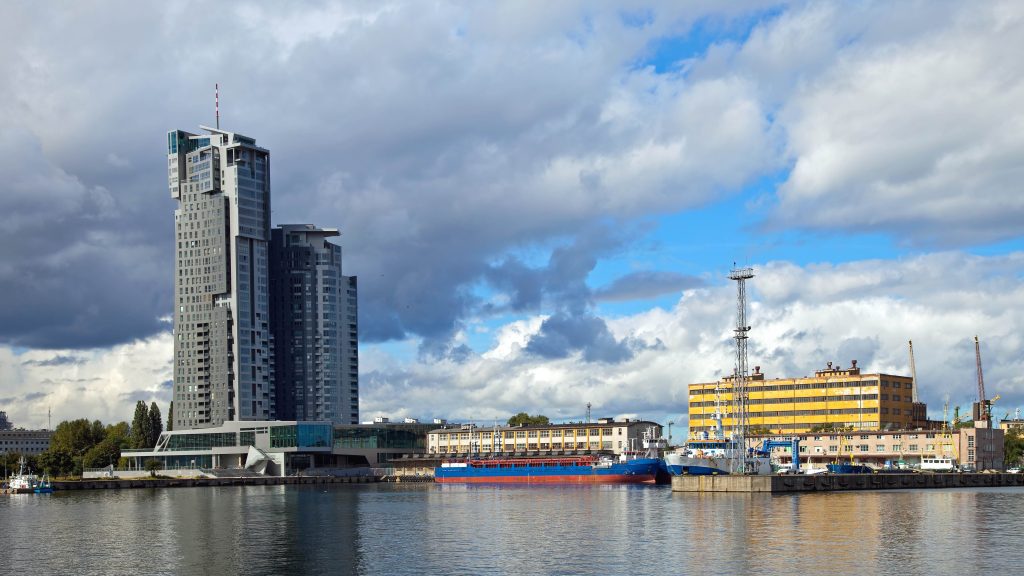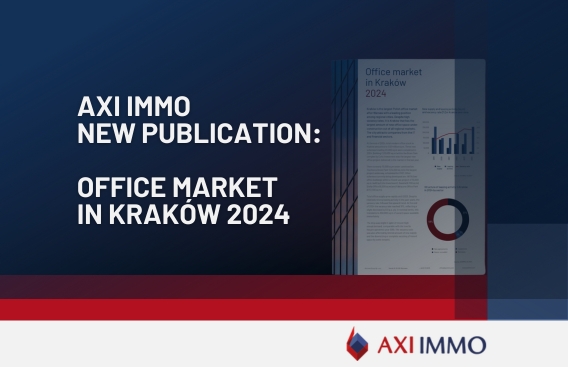The dynamic development of the e-commerce industry
The e-commerce sector in Poland, compared to Western European countries, is in the early stage of development.

While in western countries e-commerce players dominate logistics parks, traditional retail chains still prevail – e-commerce generates approx. 10-15% of the demand for modern warehouse space per year, with the share of traditional stores reaching approx. 80%. However, based on the observation of the latest trends, it is not difficult to say that companies developing online sales will become an increasingly important client of warehouse space developers and logistics operators. Poland ranks among the European leaders in terms of the dynamics of growth in the value of online sales. According to the estimates of the Ministry of Economy, the share of electronic commerce in total sales by 2018 will reach from approx. 4% to 9%.
Among the customers in Poland, clothes, electronics, household appliances, cosmetics, perfumes, products for children and food products are the most frequently purchased online. Food sale is the segment of the retail market that is growing the fastest – about 10 times a year. Online grocery shopping will become the dominant model over the coming years; Shopping centers and supermarkets will disappear, while small neighborhood shops and show rooms will be saved.
ORDER FULFILLMENT CENTERS
Hence the conclusion that traditional warehouse and distribution activities will give way to order fulfillment centers. The transformation in the leading sectors of the market will force developers to flexibly adapt to the new situation – logistics warehouses dedicated to the e-commerce industry require a different technical specification than traditional facilities, as well as a larger area – almost three times compared to their traditional predecessors. The efficient pallet storage characteristic of in-store distribution will be replaced by packing, return-taking, order processing and relocating zones.
ADAPTATION TO THE NEEDS OF E-TRADE
In most cases, the optimal solution for companies from the e-commerce sector are cross-dock facilities that meet the reloading requirements, equipped with docks adapted to TIR vehicles and smaller vans; We can expect more and more speculative objects built in this format. Leasing the facility is cheaper than implementing a BTS project, so it is a more realistic solution for smaller players on the market. However, BTS facilities will not lose their popularity, meeting the needs of larger and more demanding customers. Looking for ways to increase their profitability, diversify their offer and shorten the time-to-market, e-commerce companies increasingly perceive their logistics facilities as one of the factors enabling them to increase their revenues. Already at the moment, more and more online stores decide to cooperate with courier and logistics companies. Virtually each of the largest market players offers a range of services to improve e-commerce (preparation of shipments, storage, handling returns, product exchange, payment management, software maintenance, etc.).
NEW TRENDS – SBU
One of the most important elements is the location of the building. Companies serving local markets will focus on locations in large regional cities or on their outskirts; In such a case, SBU (Small Business Unit) objects may be a convenient solution. The central warehouse should be located in a strategic point facilitating logistics activities, such as Central Poland, from which, thanks to its location and developed infrastructure, it enables efficient distribution to all regions. Also, larger distributors, such as Amazon, focusing on an efficient supply chain not only on a national but also international scale, decide to locate them on the main communication routes in the country, i.e. on highways and European routes, close to the western border. The location in the vicinity of large cities also guarantees the possibility of obtaining qualified staff and facilitates the delivery process on local markets.
Recent articles
24 March 2025
Office market in Kraków 2024, Poland, publication by AXI IMMO, 2025 March – Analysis, trends, forecasts
Kraków is the leader of regional office markets – tenant activity is growing. AXI IMMO's special publication on Office market in Krakow in 2024, Poland includes an analysis of supply, demand, rental rates, as well as trends and forecasts on the Krakow office market in 2025 and 2026.
19 March 2025
AXI IMMO presents report: Industrial & Logistics Market in the Szczecin region. Summary of 2024, north-west Poland
Zachodniopomorskie Voivodeship – A logistics hub with growth potential
11 March 2025
The packaging manufacturer Preston Packaging is set to join the tenants at MLP Poznań West, Poland, advises AXI IMMO
Preston Packaging in a modern hall tailored to its needs.
7 March 2025
Tomasz Michalczyk appointed as Head of Office Agency at AXI IMMO
AXI IMMO Group strengthens its position as the largest Polish commercial real estate advisory firm by entering 2025 with a new Head of the Office Agency.



